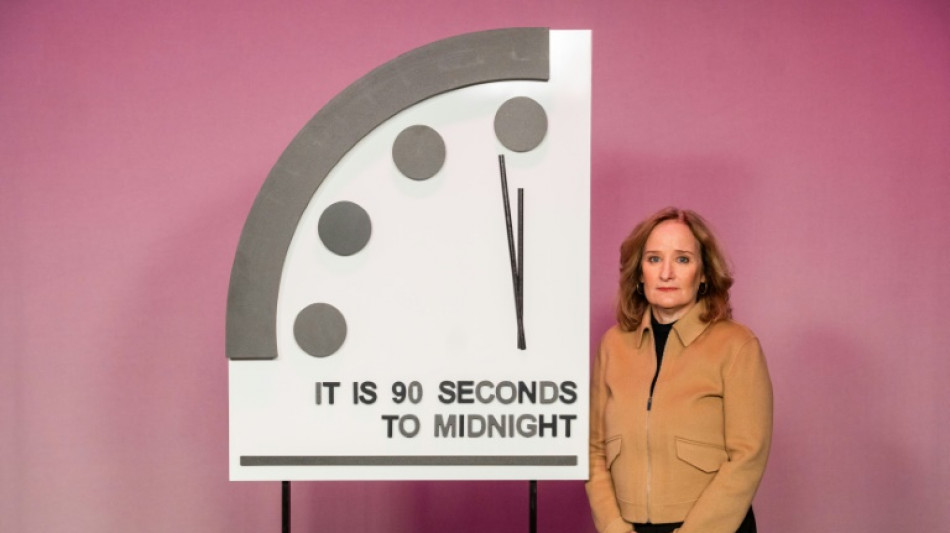
-
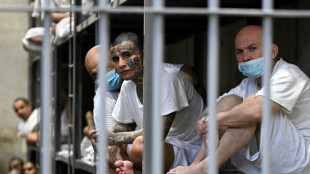 Venezuelan president slams US over little girl's 'abduction'
Venezuelan president slams US over little girl's 'abduction'
-
Hard-right upstarts eye big gains in local UK polls

-
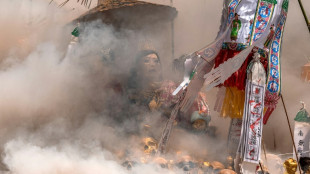 Skulls, smoke and spirits: Thai ceremony for the unclaimed dead
Skulls, smoke and spirits: Thai ceremony for the unclaimed dead
-
Canada's Carney: political newcomer who says he's best in a crisis

-
 Cavaliers scorch Heat to seal series sweep
Cavaliers scorch Heat to seal series sweep
-
Dead salmon create election stink on Australian island
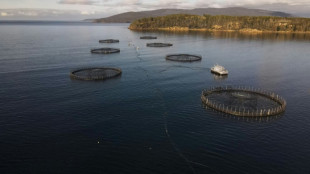
-
 Mic check: Singapore's podcast boom amplifies opposition voices
Mic check: Singapore's podcast boom amplifies opposition voices
-
Markets rise as traders gear up for earnings, key jobs data
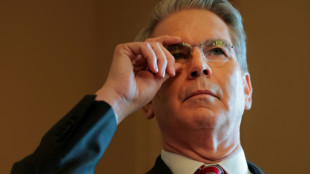
-
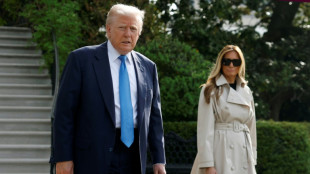 Congress passes 'revenge porn' ban, sending it to Trump
Congress passes 'revenge porn' ban, sending it to Trump
-
Spain and Portugal work to restore power after massive blackout
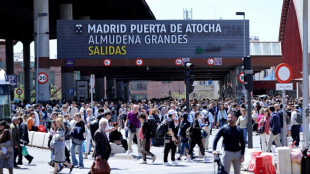
-
 Less-thirsty rice offers hope in drought-stricken Chile
Less-thirsty rice offers hope in drought-stricken Chile
-
Yamal stardust could give Barca edge on Inter Milan

-
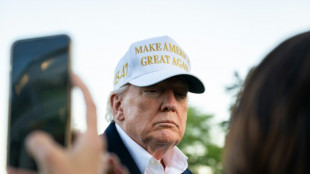 Trump targets US 'sanctuary cities' in migrant crackdown
Trump targets US 'sanctuary cities' in migrant crackdown
-
Mexico agrees to send water to US after Trump threatens tariffs
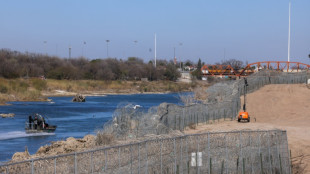
-
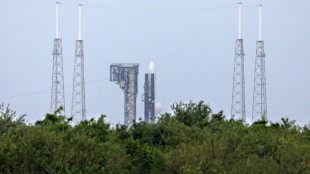 Amazon launches first Starlink-rival internet satellites
Amazon launches first Starlink-rival internet satellites
-
US lost seven multi-million-dollar drones in Yemen area since March
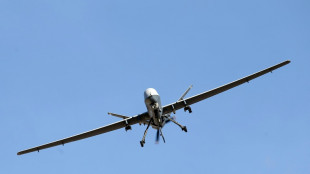
-
 Bucks blow as Lillard suffers torn Achilles: team
Bucks blow as Lillard suffers torn Achilles: team
-
Putin orders three-day truce amid new US warnings
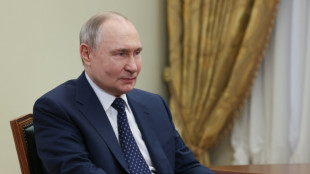
-
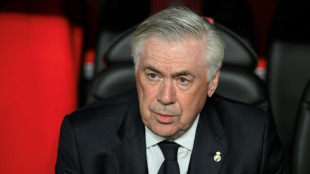 Real Madrid's Ancelotti agrees Brazil deal - reports
Real Madrid's Ancelotti agrees Brazil deal - reports
-
ChatGPT adds shopping help, intensifying Google rivalry

-
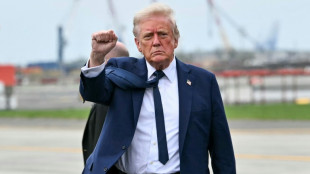 Global stocks mixed amid trade hopes as markets await tech earnings
Global stocks mixed amid trade hopes as markets await tech earnings
-
Commanders heading back to D.C. after inking $3.7 bln stadium deal
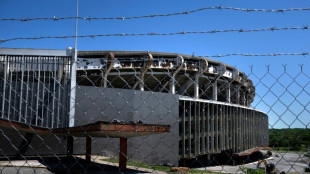
-
 US warplane falls off aircraft carrier into Red Sea
US warplane falls off aircraft carrier into Red Sea
-
Feisty Arteta urges Arsenal fans to 'bring boots' to PSG Champions League clash

-
 Bucks blow as Lillard suffers ruptured Achilles: reports
Bucks blow as Lillard suffers ruptured Achilles: reports
-
No power, no phone, no transport -- Spain in a panic
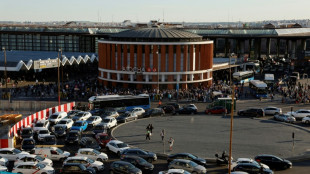
-
 US warplane went overboard into Red Sea: Navy
US warplane went overboard into Red Sea: Navy
-
'Like a dream' as IPL's 14-year-old Suryavanshi becomes youngest to hit T20 ton

-
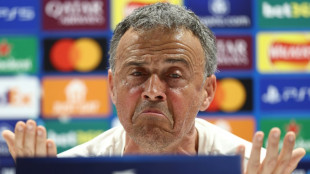 Luis Enrique says PSG have improved since October Arsenal loss
Luis Enrique says PSG have improved since October Arsenal loss
-
UN food, refugee agencies warn of huge cuts after funding losses

-
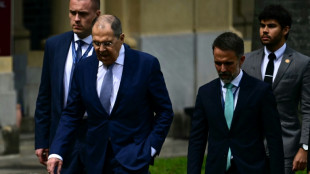 Trump trade war dominates BRICS meeting in Brazil
Trump trade war dominates BRICS meeting in Brazil
-
Rashford expected to miss rest of Aston Villa season

-
 IPL's 14-year-old Suryavanshi youngest to hit T20 ton as Rajasthan rule
IPL's 14-year-old Suryavanshi youngest to hit T20 ton as Rajasthan rule
-
Halle Berry, Jeremy Strong to join Cannes film festival jury: organisers

-
 Klopp congratulates Liverpool on Premier League triumph
Klopp congratulates Liverpool on Premier League triumph
-
Violence-weary Trinidadians vote in general election

-
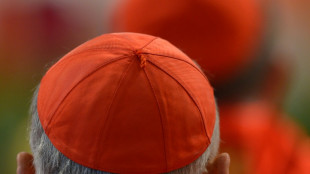 Abuse scandal in focus in search for new pope
Abuse scandal in focus in search for new pope
-
Prince William and Kate mark wedding anniversary in Scotland
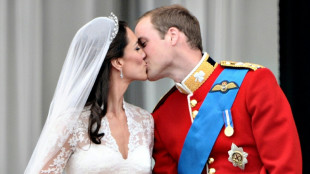
-
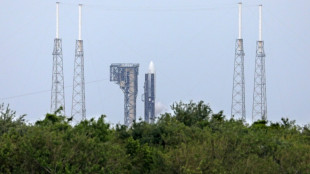 Amazon set for launch of Starlink-rival satellites
Amazon set for launch of Starlink-rival satellites
-
London mayor Sadiq Khan targets Olympic history for city
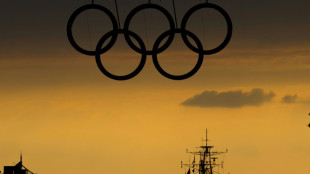
-
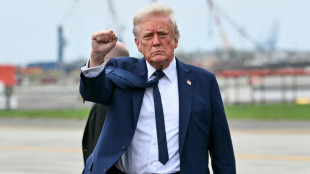 Stock markets diverge amid trade hopes, ahead of earnings
Stock markets diverge amid trade hopes, ahead of earnings
-
Canada votes as Trump renews US takeover push
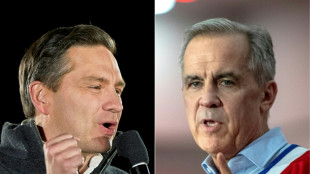
-
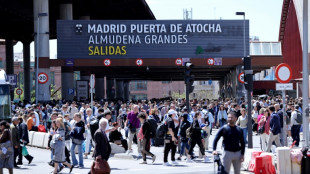 Massive blackout hits all of Spain and Portugal
Massive blackout hits all of Spain and Portugal
-
Conclave starts May 7, cardinals say new pope must tackle abuse
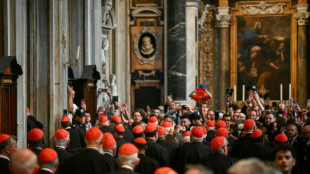
-
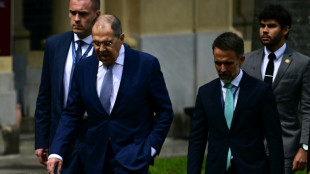 BRICS ministers meet in Brazil over Trump trade policies
BRICS ministers meet in Brazil over Trump trade policies
-
Trump escalates immigration crackdown to mark 100 days
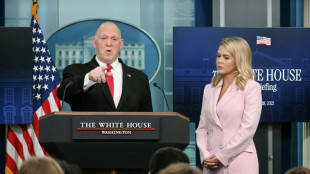
-
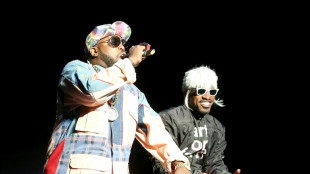 Outkast, White Stripes, Cyndi Lauper among Rock Hall inductees
Outkast, White Stripes, Cyndi Lauper among Rock Hall inductees
-
Putin orders three-day truce in May but Ukraine asks 'Why wait?'
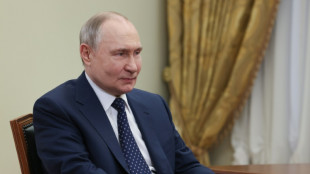
-
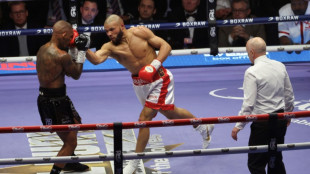 Eubank Jr discharged from hospital following boxing grudge match
Eubank Jr discharged from hospital following boxing grudge match
-
China deploys army of fake NGOs at UN to intimidate critics: media probe
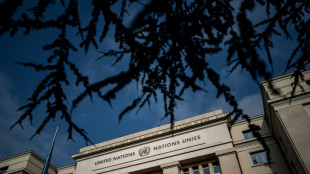

'Doomsday Clock' remains at 90 seconds to midnight
The symbolic "Doomsday Clock" was held at 90 seconds to midnight Tuesday, reflecting existential threats to humanity posed by potential nuclear escalation from the war in Ukraine and the multiplying impacts of the climate crisis following Earth's hottest recorded year.
Set by top scientists and security experts, the timing of the clock remains the same as last year and the closest it has ever been to midnight in its more than 75-year-history.
"Trends continue to point ominously towards global catastrophe," said Rachel Bronson, president and CEO of the Bulletin of Atomic Scientists. "The war in Ukraine poses an ever present risk of nuclear escalation, and the October 7 attack in Israel and war in Gaza provides further illustration of the horrors of modern war, even without nuclear escalation."
Rather than abandoning nuclear weapons, countries that possess them are upgrading their arsenals, while massive floods, fires and other climate disasters threatened billions of lives and livelihoods in a year that saw record-shattering temperatures caused by mankind's reluctance to turn away from fossil fuels.
"Biological research aimed at preventing future pandemics has proven useful, but also presents the risks of causing one," Bronson said, while recent advances in artificial intelligence (AI) raise questions about how to control a technology "that could improve or threaten civilization in countless ways."
-War in Ukraine looms large -
Russia's invasion of Ukraine, now just a month away from its second anniversary, was the principal reason behind the clock being moved to 90 seconds before midnight in 2023, and continued to overshadow this year's update.
Moscow's thinly veiled threats of nuclear war, its attacks on nuclear sites, and its erosion of international norms of conduct have all contributed to heightened risk, the Bulletin said, while Israel's war in Gaza threatens to evolve into a wider regional conflict involving nuclear states.
Meanwhile, "traditional nuclear arms control really has come to an end for now," said Alex Glaser, a Princeton University professor of mechanical and aerospace engineering. Russia withdrew from the New Strategic Arms Reduction Treaty (New START) and the Comprehensive Nuclear-Test-Ban Treaty (CTBT), which the United States never ratified to begin with.
China is increasing its arsenal, which now stands at 500 nuclear weapons, "and for the first time, at least in my adult life, there is now talk in Washington that the US nuclear arsenal will have to increase also in order to match... Russia and China combined," Glaser added.
On climate, Ambuj Sagar, a professor at the Indian Institute of Technology Delhi said there had been a "mixed story," hailing $1.7 trillion invested in clean energy at the climate COP in Dubai as a sign of moving in the right direction, albeit "not as fast or as deeply" as required.
The clock was originally set at seven minutes to midnight in 1947.
The furthest from midnight it has ever been is 17 minutes, following the end of the Cold War in 1991.
The Bulletin was founded in 1945 by Albert Einstein, J. Robert Oppenheimer and other scientists who worked on the Manhattan Project, which produced the first nuclear weapons. The idea of the clock symbolizing global vulnerability to catastrophe followed two years later.
A.Rodriguezv--AMWN
